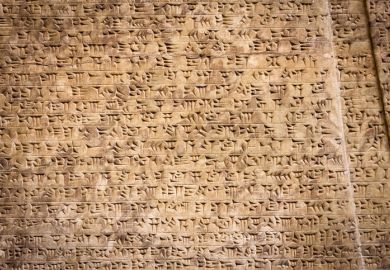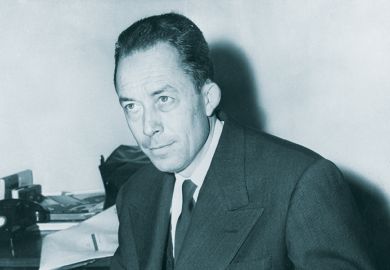Wole Soyinka recalled, in The Burden of Memory, an event held in Paris on the occasion of Léopold Senghor's 90th birthday in 1996. A distinguished group gathered under the auspices of Unesco, and the French and Senegalese governments, to pay homage to the poet, statesman and key theorist of négritude. Senghor himself was too frail to be present and appeared in a filmed message shot in a beautiful garden. Soyinka records that this garden was not filled with "the tamarind trees of Joal" but the "clipped grounds and luxuriant flowers of his obviously French country home... in an ambience that was clearly alien to the majority of... the Senegalese who, in far off West Africa, were similarly gathered to do him honour".
The complexity of Senghor's position has, for many postcolonial theorists, provided an alibi for his invisibility. Although Frantz Fanon has always been a central figure in the pantheon, Senghor and other complex masters of anti-colonial praxis have been relegated almost to the footnotes of recent debates that have acquired the label postcolonial. These debates have become increasingly introspective dialogues between different voices within the academy.
The achievement of Robert Young's admirable and exceedingly comprehensive account is to foreground such practitioners, reviving them as presences that must be central to the discussion of the "forces of oppression and coercive domination that operate in the contemporary world", as Young characterises the focus of postcolonial critique.
Those wanting an accessible and more conventional introduction to the academic debates underpinning postcolonialism will do better with Ania Loomba's introductory text. Young's book is an ambitious, heavyweight primer that will prove valuable across many disciplines. The sweep and detail is immense and impressive. Colonialism, imperialism and the former's neo and post-incarnations are situated conceptually and historically before a detailed set of overviews that speed from Bartolome de Las Casas to Marx.
The real substance of the book unfolds in full discussions of national liberation movements, focusing on Latin America, Africa and India.
The broad historical and geographical sweep leads Young to argue for the redemption of disparaged figures - not only Senghor but also Gandhi, among others - and to suggest that more recent theorists, notably the Indian intellectual Ashis Nandy, should be more widely acknowledged for the significance of their contributions. Indeed, he suggests that Nandy's 1983 work The Intimate Enemy is deserving of the sort of esteem granted to Edward Said's Orientalism. Young also develops a persuasive argument about the centrality of the "margins", to the constitution of the "centre" and collates a massive body of evidence with which to set about "provincializing Europe".
A final section of the book groups essays written in different styles on subaltern studies - Said, Michel Foucault and Jacques Derrida, among others. The essay on Derrida is particularly fine. Addressed in the first person to Derrida (and breaking the summative textbook spell that prevails to this point), an argument unfolds that seeks to fuse the broader poststructuralist concern with marginality, with postcolonialism's more specific claims about hybridity and displacement. This is an argument that is extended to other practitioners of "Franco-Maghrebian theory": Louis Althusser, Jean-Francois Lyotard, Hélène Cixous, even Pierre Bourdieu.
Young argues that Derrida's critique ("Franco-Judaeo-Maghrebian theory") is an embodiment of the experience of being taught that "History" was the history of France, and of being a "non-belonging" Jew in French Algeria.
Like Cixous, Derrida's family history encompassed expulsion from 15th-century Spain and the use of their community's confiscated wealth to finance Columbus's expedition. Young records his "strange thought" that "without the Derridas and Cixous's of this world, no 'Latin America'".
Derrida's work is read as an act of "postcolonial retribution", a reflection of a life originating in the margins that forced on him the revelation of the artifice of certainty and presence. As Derrida put it:
"Those who are sensitive to all the stakes of 'creolisation'... assess this better than others."
The question left hanging in this excellent volume is the extent to which postcolonial critique is revealed as one aspect of the broader critique of the "world as picture" in which colonialism and imperialism are but two of many versions of world conquering. Young does a brilliant job in laying the foundations for the further understanding of this urgent dilemma.
Christopher Pinney is reader in anthropology and visual culture, University College London.
Postcolonialism: An Historical Introduction
Author - Robert J. C. Young
ISBN - 0 631 20071 1
Publisher - Blackwell
Price - £17.99
Pages - 498
Register to continue
Why register?
- Registration is free and only takes a moment
- Once registered, you can read 3 articles a month
- Sign up for our newsletter
Subscribe
Or subscribe for unlimited access to:
- Unlimited access to news, views, insights & reviews
- Digital editions
- Digital access to THE’s university and college rankings analysis
Already registered or a current subscriber? Login



